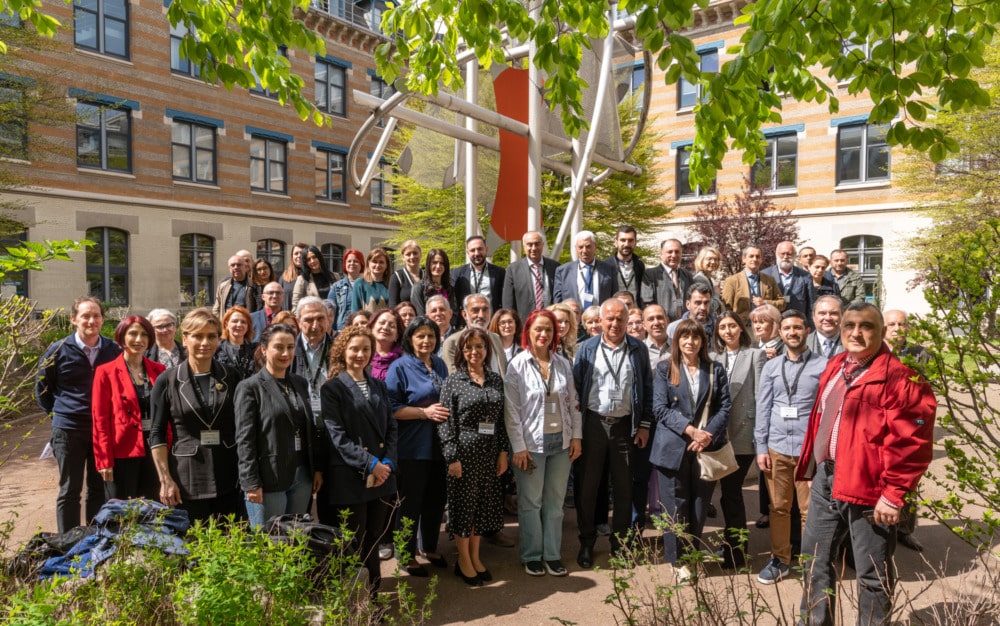The Erasmus+ ARMDOCT Capacity Building Program recently organized a workshop aimed at reforming doctoral education in Armenia. The workshop was held at the Jean Moulin Lyon 3 University in France from April 25-27 and was attended by more than 60 representatives from various organizations, including the Ministry of Education, Science, Culture, and Sports of the Republic of Armenia, the EU and AM partner universities and research institutes. The participants comprised institutional leaders and researchers with expertise in different fields related to doctoral education.
The workshop provided an opportunity for the participants to learn about the process of organizing doctoral education in France, recent reforms, innovative structures of doctoral programs, supervision and co-supervision features, quality assurance mechanisms of research works, and other relevant topics. The opening speeches were delivered by Prof. Manuel Jobert, Vice-President for International affairs of Jean Moulin Lyon 3 University, Prof. Isabelle Delpla, Vice-President for Research, Prof. Guillaume ROUSSET, ARMDOCT project Local Coordinator, and Arevik Ohanyan, coordinator of the ARMDOCT program.
The speakers emphasized the importance of long-term cooperation with Armenian universities and noted that the ARMDOCT program of Jean Moulin Lyon 3 University has a reliable partner in the process of reforming doctoral education in Armenia. They highlighted the significance of the reforms in order to internationalize and keep pace with the scientific world.
During the workshop, the participants explored various topics, including the achievements of a management and economics doctoral school, as well as the experiences of a law doctoral school. The attendees also learned about the European approach to curriculums, credit systems, supervision and co-supervision systems, and internal and external quality assurance. The Armenian representatives actively participated in group discussions regarding the doctoral schools and programs that are set to launch in Armenia.
It is worth noting that a number of doctoral schools will be launched in Armenia soon, including DS in Special Education at ASPU, an Industrial PHD/DS in artificial intelligence (AI) and machine learning (ML) at YSU, an Industrial Doctoral Program in Technical/technological Sciences at NPUA, DS in Sustainable Development at EIU and ISEC, DS in Computer Science at UFAR and IIAP, DS in Computational Linguistics at BSU, PhD programme in Neuroscience at YSMU, and Curriculum Enhancement and Development of Co-supervision Toolkit at VSU.
Overall, the workshop was a valuable platform for the participants to share their experiences, learn from each other, and discuss strategies for improving the quality of doctoral education in Armenia. The discussions and ideas generated during the workshop will serve as a basis for future efforts to reform and enhance doctoral education in the country.

